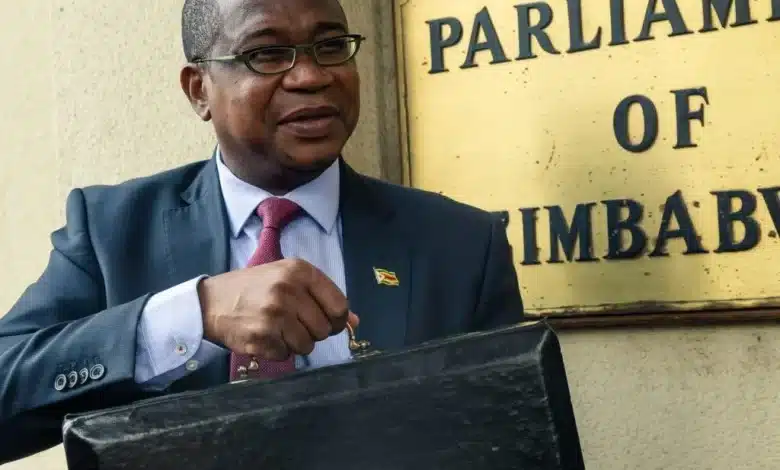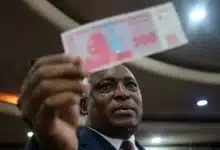Zimbabwean Finance Minister Mthuli Ncube. (Jekesai Njikizana/AFP)
Zimbabwe is setting its sights on an economic growth rate of up to 6% in the upcoming year, an ambitious increase from the projected 2% for 2024. This optimistic forecast is contingent upon a reduction in power outages that have plagued the nation, particularly highlighted by a power cut that occurred right after Finance Minister Mthuli Ncube presented the 2025 fiscal budget on Thursday.
As the lights flickered out in the Mount Hampden parliamentary building, opposition legislators began chanting, “State of affairs! State of affairs!” This outcry underscored the harsh reality faced by Zimbabweans, who have been enduring power shortages of nearly 20 hours a day or more.
During his address, Ncube spoke candidly about the “significant load shedding that continues to weigh down on growth potential and competitiveness of the economy.” Power outages, largely attributed to low water levels in the Kariba Dam and regular breakdowns at the Hwange coal-fired power station, are expected to result in a 10% drop in the nation’s mineral income, a crucial component of Zimbabwe’s economy.
Ncube acknowledged the economic challenges posed by drought conditions, citing them as a contributing factor to the slow growth of just 2%. However, he expressed optimism moving forward: “In 2025, we expect to see 6% growth, based on anticipated better rains, stable inflation, and tight fiscal management.”
Related Articles
To enhance revenue generation, the Zimbabwean government has introduced a new tax on gambling winnings and frozen hiring in all sectors except health and education. Starting January 1, a 10% withholding tax will be imposed on gross winnings, reflecting the government’s attempt to capitalize on the burgeoning betting industry, which enjoyed an 8.5% growth last year.
In addition, Ncube announced that the administration intends to implement “revenue enhancement measures,” which will require small businesses to register for corporate and income tax. Failure to conduct transactions through formal channels could result in fines amounting to hundreds of thousands of rand.
The budget also includes a controversial 0.5% tax on fast food sales, aimed at promoting healthier consumption habits amid rising concerns over non-communicable diseases linked to diet.
Economic strains are further compounded by labor unrest in the education sector, with teachers expressing frustration over delayed annual bonuses, resulting in allegations of “breach of contract” by the Zimbabwe Teachers Association. The Association has highlighted that many educators are struggling to manage their finances amidst increased economic pressures.
Salaries for government employees now account for 56.4% of the government’s earnings, prompting the administration to impose a hiring freeze to prevent a ballooning wage bill.
Despite the challenges, Zimbabweans abroad—particularly in South Africa—have been a financial lifeline for the country, sending home an estimated R34.2 billion through formal channels from January to September this year, with projections suggesting this could rise to R45 billion by year’s end.
As the country grapples with economic pressures, the total budget for 2025 has been set at R145 billion, equating to about R8,000 per person, significantly lower than South Africa’s R36,000 per capita spending.
The road to recovery appears fraught with challenges, but the government remains determined to implement measures aimed at tackling the issues head-on and fostering an environment ripe for growth.

 Steps to Evaluate Local Crypto Sector And Introduce a Regulatory Framework, All Set in Zimbabwe!
Steps to Evaluate Local Crypto Sector And Introduce a Regulatory Framework, All Set in Zimbabwe!  Starlink Given the Greenlight to Operate in Zimbabwe!
Starlink Given the Greenlight to Operate in Zimbabwe!  Zimbabwe introduces New Gold-backed Currency to tackle Inflation!
Zimbabwe introduces New Gold-backed Currency to tackle Inflation!